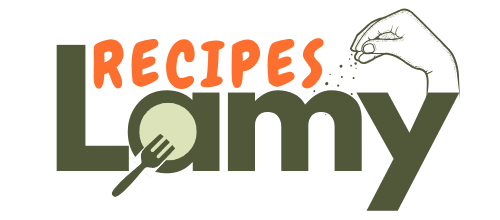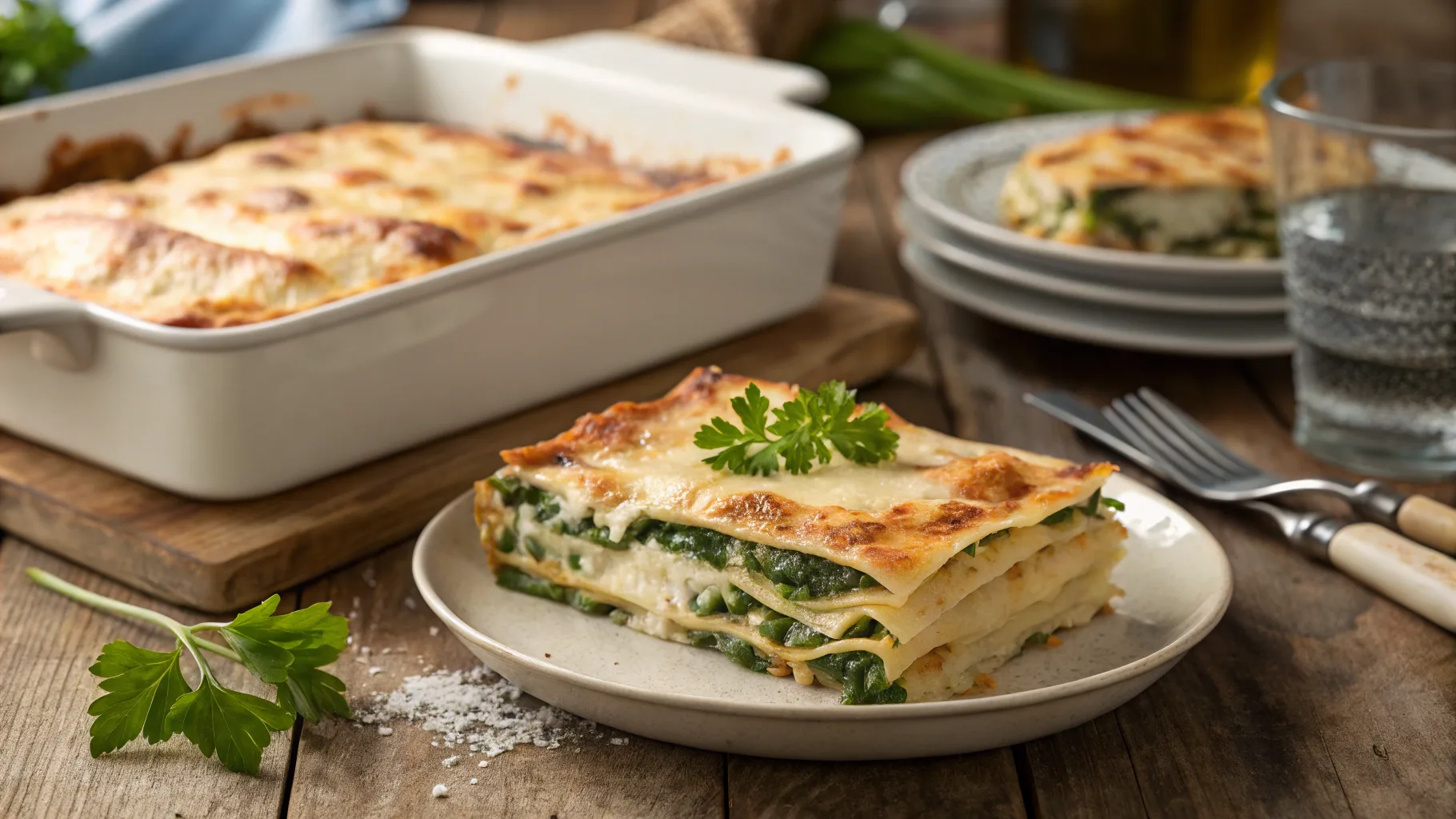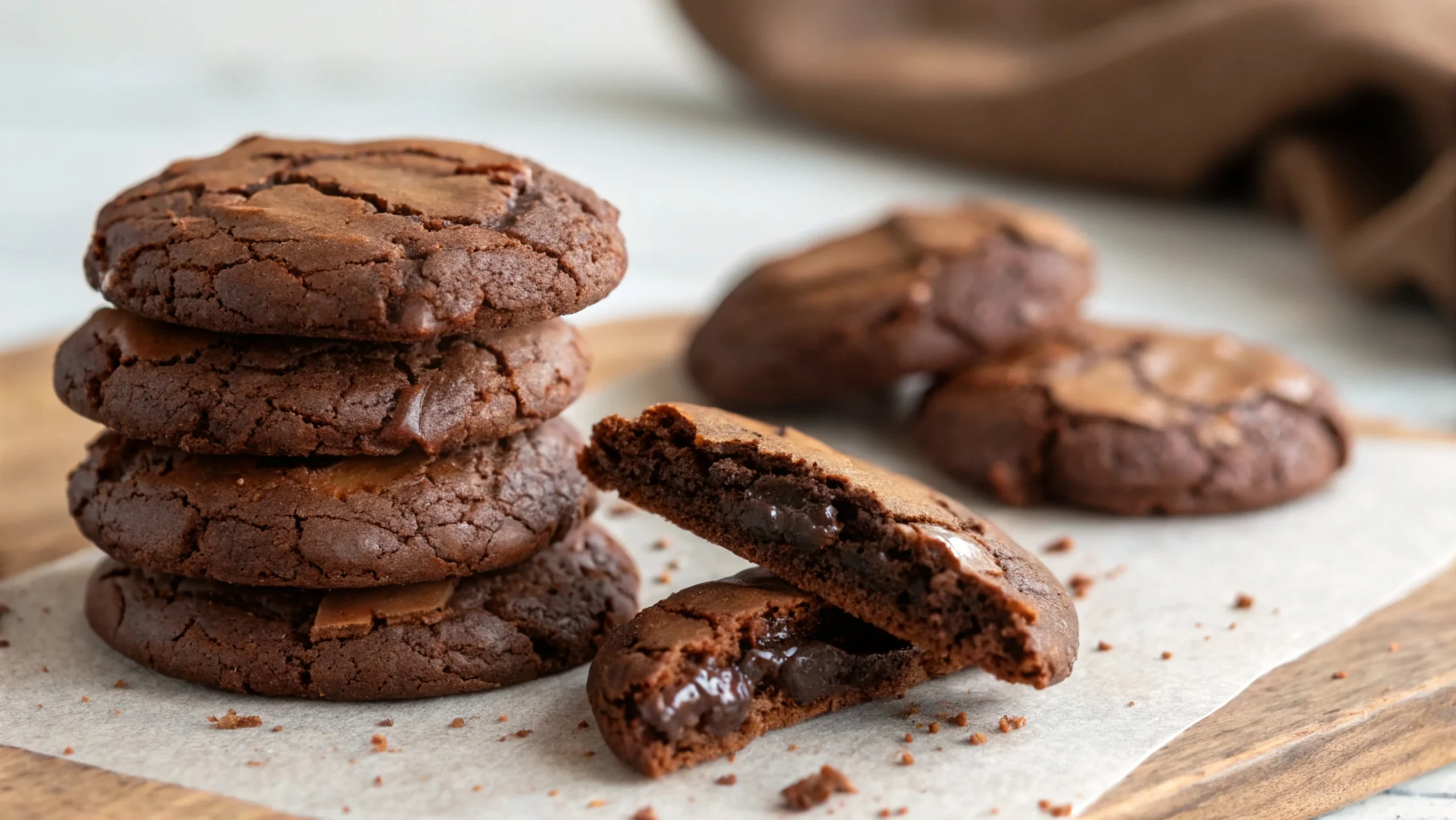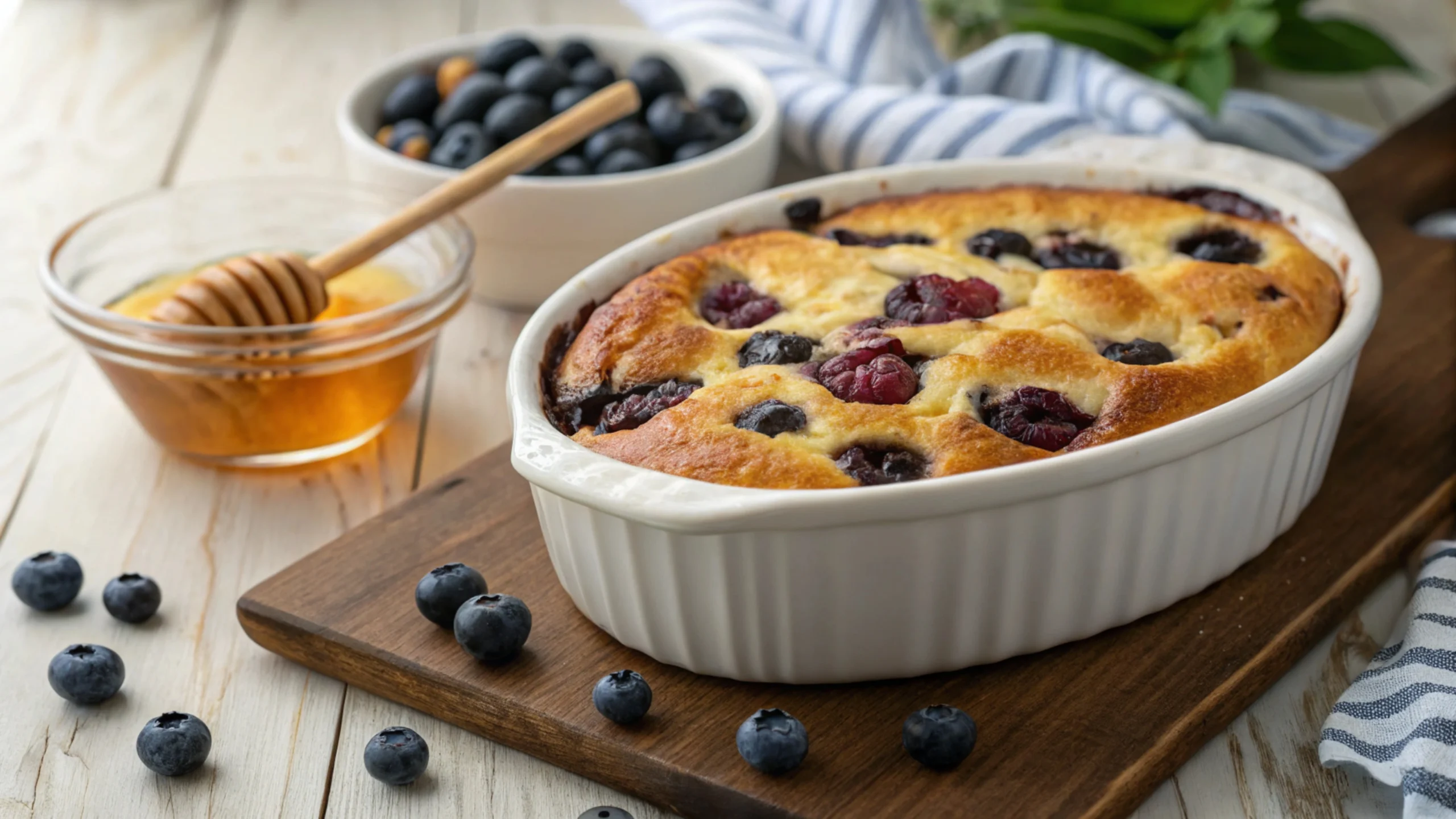Cottage cheese is a highly nutritious and versatile dairy product that has gained popularity among health enthusiasts, fitness fanatics, and food lovers alike. Its high protein content, low fat, and mild flavor make it an excellent choice for a variety of dishes. However, a common question arises when incorporating cottage cheese into recipes that involve heat: Does cottage cheese lose protein when cooked?
In this comprehensive article, we’ll explore the nutritional profile of cottage cheese, the science behind how heat affects proteins, and whether cooking impacts its protein content. We’ll also discuss the best ways to cook with cottage cheese to preserve its nutritional value, and answer some frequently asked questions about this dairy powerhouse.
Table of Contents
What Is Cottage Cheese?
Cottage cheese is a fresh cheese curd product made from cow’s milk. It is known for its soft, creamy texture and mild, slightly tangy flavor. Unlike aged cheeses, cottage cheese is not matured, which contributes to its lower fat content and unique nutritional profile. For creative ways to incorporate cottage cheese, check out this recipe for baked cottage cheese.
Nutritional Profile of Cottage Cheese
Cottage cheese is packed with essential nutrients, making it a staple in many healthy diets. Here’s a breakdown of its nutritional value per 100 grams (depending on the brand and fat content):
- Protein: 11–14 grams
- Calories: 98–120
- Fat: 4–5 grams (in full-fat varieties; low-fat versions have less)
- Carbohydrates: 3–4 grams
- Calcium: 83–100 mg
- Sodium: 400–450 mg
One of the main reasons cottage cheese is prized in the health and fitness community is its protein content. It is rich in casein, a slow-digesting protein, which makes it ideal for muscle repair and growth. Learn why cottage cheese is good cooked to further expand your knowledge about its benefits in heated dishes.
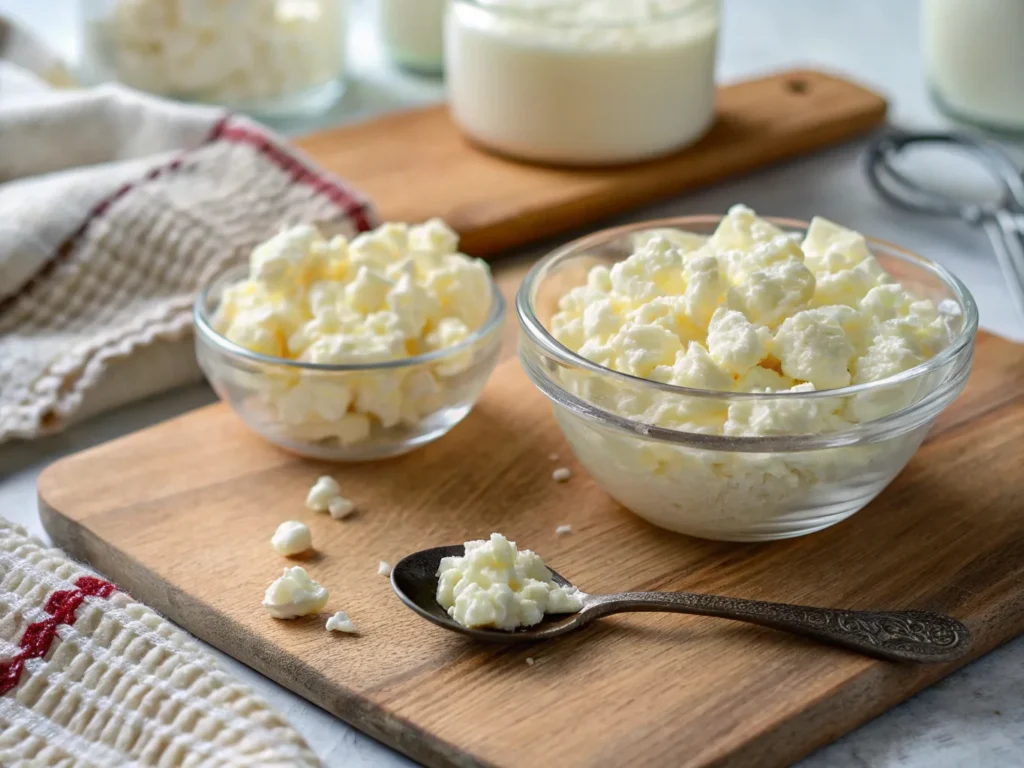
The Role of Protein in Cottage Cheese
Proteins are complex molecules made up of amino acids, and they serve as the building blocks of the body. In cottage cheese, the protein primarily consists of casein and whey. These proteins contribute to various functions:
- Casein Protein
Casein is the dominant protein in cottage cheese, accounting for about 80% of its protein content. It digests slowly, providing a steady release of amino acids, making it beneficial for muscle recovery. - Whey Protein
Whey, a byproduct of cheese-making, is a fast-digesting protein that supports muscle repair and immune health.
Why Protein Matters
Protein is vital for building and repairing tissues, maintaining muscle mass, producing enzymes and hormones, and supporting overall health. For those looking to optimize their protein intake, understanding how cooking affects the protein in cottage cheese is essential.
What Happens to Cottage Cheese Protein When Cooked?
When cooking cottage cheese, its proteins undergo structural changes due to exposure to heat. This process, known as denaturation, alters the shape of protein molecules but not their nutritional value.
Denaturation Explained
For example, discover the answer to “does cottage cheese melt when baked?” to understand how its texture and properties change during cooking.
For example:
- The protein in an egg white solidifies when cooked, but its nutritional value remains intact.
- Similarly, the protein in cottage cheese may change texture when heated, but the total protein content remains the same.

How Cooking Affects Cottage Cheese Protein Content
The short answer is no—cooking does not reduce the protein content in cottage cheese. However, there are some nuances to consider:
- Protein Retention
The total amount of protein remains unchanged when cottage cheese is cooked. Heating simply alters the structure of the protein molecules, which can affect texture but not their nutritional value. - Moisture Loss
When cooking cottage cheese, especially at high temperatures, moisture may evaporate, which can concentrate the protein content per gram. For example, baked dishes may appear denser in protein due to reduced water content. - Nutritional Absorption
Cooking does not destroy the amino acids in cottage cheese. However, certain cooking methods, such as prolonged exposure to high heat, may slightly impact the digestibility of some proteins.
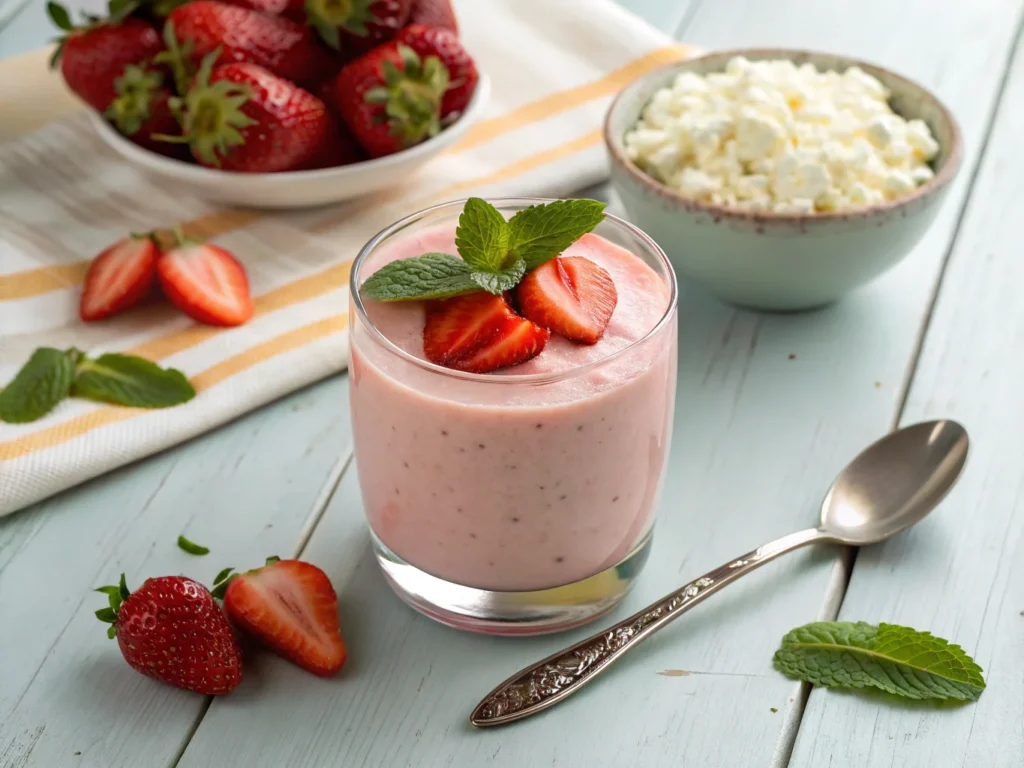
Best Cooking Methods to Preserve Protein in Cottage Cheese
If you plan to cook with cottage cheese, it’s essential to use methods that retain its nutritional value while enhancing flavor and texture. Here are some popular techniques:
1. Baking
Cottage cheese can be used in baked goods such as casseroles, lasagna, and cheesecakes. Baking at moderate temperatures (350°F or lower) ensures the protein content remains intact while creating a delicious dish.
2. Blending and Incorporating into Recipes
Blending cottage cheese into soups, sauces, or smoothies is an excellent way to add protein without directly exposing it to high heat.
3. Stirring into Hot Dishes
Adding cottage cheese to hot dishes at the end of cooking helps preserve its creamy texture and nutritional integrity.
4. Grilling or Sautéing
While cottage cheese may not hold its shape well when grilled or sautéed, combining it with other ingredients can prevent excessive moisture loss.
Tips for Cooking with Cottage Cheese
To make the most of cottage cheese’s nutritional benefits, consider these tips:
- Use Low Heat: Cooking at lower temperatures helps retain moisture and prevent protein degradation.
- Combine with Other Ingredients: Pairing cottage cheese with vegetables or whole grains adds nutritional variety and prevents overcooking.
- Avoid Prolonged Cooking: Overcooking can alter texture significantly, though it won’t affect protein content.
- Experiment with Recipes: Incorporate cottage cheese into recipes like protein pancakes, dips, or spreads to enjoy its benefits in different ways.
Health Benefits of Including Cottage Cheese in Your Diet
Cottage cheese offers numerous health benefits beyond its protein content. These include:
- Weight Management: Its high protein and low-calorie content make it a satiating food for weight loss.
- Muscle Building: Slow-digesting casein protein aids in muscle repair and growth.
- Bone Health: Rich in calcium, cottage cheese supports strong bones and teeth.
- Improved Metabolism: Protein-rich foods like cottage cheese boost metabolism by increasing thermogenesis.
How Cooking Affects the Texture of Cottage Cheese
While the protein content in cottage cheese remains unchanged when cooked, its texture can undergo noticeable changes due to heat exposure. Cottage cheese is naturally moist and creamy, but heating causes the water content to evaporate, and the curds may become firmer or rubbery. This change in texture is due to the coagulation of casein, the primary protein in cottage cheese. The more intense the heat, the more pronounced the texture transformation. For recipes like baked ziti or stuffed pasta shells, this change is desirable as it helps the cheese blend harmoniously with other ingredients, creating a rich and cohesive dish.
To address this concern, it’s important to note that cottage cheese protein does not degrade when heated, though its texture may change. So, you can confidently include cottage cheese in your baked dishes without losing its protein benefits.
Combining Cottage Cheese with Other Proteins
Cottage cheese is often paired with other protein sources to create nutrient-dense meals. For example, blending cottage cheese with eggs in recipes like frittatas or savory muffins not only enhances the protein profile but also improves the texture of the dish. The heat stability of eggs complements the creaminess of cottage cheese, resulting in a balanced, protein-rich meal. Similarly, combining cottage cheese with lean meats, such as chicken or turkey, provides a complete amino acid profile, making it an excellent option for those seeking muscle-building or weight-loss-friendly meals.
Can Overheating Destroy Other Nutrients in Cottage Cheese?
While the protein in cottage cheese remains stable during cooking, certain vitamins and minerals may degrade when exposed to high heat. For instance, vitamin B12, a nutrient abundant in cottage cheese, is sensitive to prolonged heating. To maximize the retention of these vitamins, it’s best to incorporate cottage cheese into recipes that require minimal cooking, such as smoothies, no-bake desserts, or fresh salads. Alternatively, adding cottage cheese as a topping after cooking can preserve its nutrient profile while still enhancing flavor.
The Science of Protein Absorption After Cooking
Cooking cottage cheese not only changes its texture but can also influence how your body absorbs its nutrients. Denatured proteins, which occur when heat alters their structure, can sometimes be easier for the body to digest. This means that cooking cottage cheese might slightly improve the bioavailability of its amino acids, making it an excellent choice for post-workout meals or recovery dishes. However, these benefits are marginal and depend on individual digestive efficiency.
Cottage Cheese in High-Heat Recipes: Does It Hold Up?
Cottage cheese is versatile enough to be used in high-heat recipes like quiches, soufflés, or baked casseroles. In these dishes, the cheese blends with other ingredients, mitigating the effects of heat-induced texture changes. To prevent over-drying or curd separation, consider using full-fat or cream-style cottage cheese, as the added fat content provides a protective barrier against excessive moisture loss during cooking.
Using Cottage Cheese as a Protein Boost in Low-Heat Cooking
For those concerned about preserving every aspect of cottage cheese’s nutritional integrity, low-heat or no-cook recipes are ideal. Spreading cottage cheese on whole-grain toast, mixing it with fresh herbs for a savory dip, or folding it into yogurt for a protein-packed snack ensures you retain its full nutrient profile. These preparations are particularly beneficial for individuals on high-protein diets or those seeking a convenient, nutrient-dense option.
Cottage Cheese vs. Other Cheeses When Cooked
Compared to other cheeses, cottage cheese behaves differently under heat. Hard cheeses like cheddar or mozzarella melt into a smooth, gooey texture, while cottage cheese tends to retain its curd structure. This makes it a unique option for recipes where you want to add a creamy texture without the grease associated with melted cheese. Additionally, cottage cheese contains fewer calories and fat than many traditional cheeses, making it a healthier alternative in cooked dishes.
Enhancing the Flavor of Cooked Cottage Cheese
Cooking can sometimes dull the mild, tangy flavor of cottage cheese, but there are simple ways to enhance its taste. Adding herbs, spices, or even a sprinkle of grated Parmesan can elevate its flavor profile in cooked recipes. For sweet dishes, combining cottage cheese with honey, cinnamon, or vanilla creates a creamy, dessert-like filling perfect for crepes or pancakes. These additions not only improve taste but also ensure the dish remains appealing to a variety of palates.
By incorporating these additional points into your understanding of cottage cheese, you’ll be better equipped to enjoy this nutritious dairy product in a variety of ways while preserving its protein content and maximizing its culinary potential.
FAQs
1. Can Cottage Cheese Be Microwaved Without Losing Protein?
Yes, microwaving cottage cheese will not reduce its protein content. However, it may change its texture, making it less creamy.
2. Does Cottage Cheese Lose Protein When Boiled?
No, boiling cottage cheese does not reduce its protein content. However, it may separate into curds and whey due to the high heat.
3. Can You Eat Cooked Cottage Cheese on a High-Protein Diet?
Absolutely! Cooked cottage cheese retains its protein and can be a versatile ingredient in high-protein meals.
Conclusion: Does Cottage Cheese Lose Protein When Cooked?
Cooking cottage cheese does not lead to a loss of protein, although it alters its texture. By understanding the impact of heat on its structure and employing low-heat cooking methods, you can preserve its nutritional integrity while enjoying versatile dishes. Whether you’re exploring what cottage cheese does in baking or using it as a protein boost in recipes, cottage cheese remains a valuable addition to any meal.
In conclusion, does cottage cheese lose protein when cooked? The answer is no. Cooking does not reduce the protein content in cottage cheese, making it a great choice for high-protein recipes.
